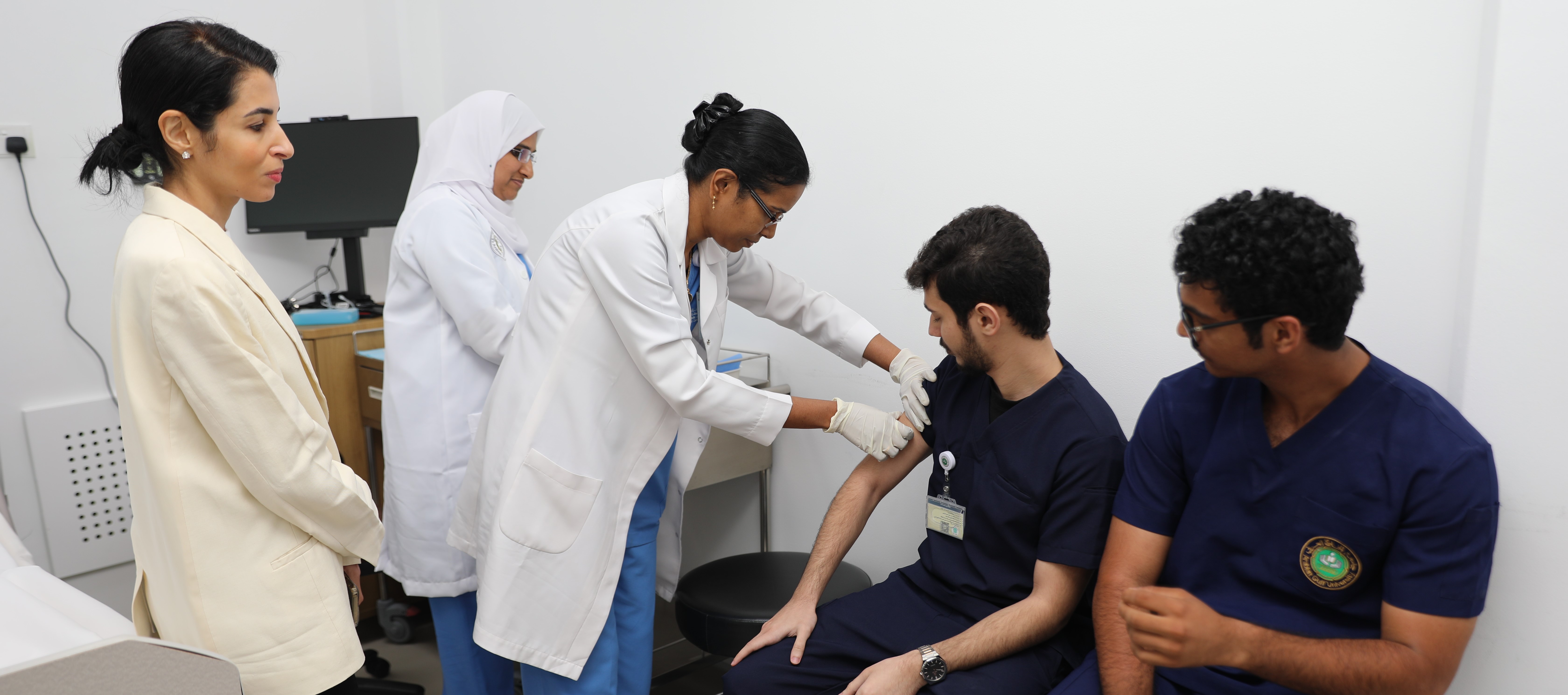
AGU Launches Annual Seasonal Flu Vaccination Campaign
Arabian Gulf University
13 Nov, 2025
The Arabian Gulf University (AGU) has launched its annual campaign to vaccinate students from the GCC countries against seasonal influenza. The initiative aims to curb the spread of the virus, which tends to peak during the winter months. This effort was coordinated with Salmaniya Medical Complex and other government hospitals to facilitate vaccination for Gulf students residing in the Kingdom of Bahrain.
Organised by the Deanship of Student Affairs for the 2025-2026 academic year, the campaign was conducted at the Sakhir campus, Salmaniya Medical Complex, and several health centres, underscoring the university’s commitment to the health and safety of its students. Over 120 students participated in the initiative.
Dr Aseel Al Saleh, Dean of Student Affairs, stated that the university provides direct medical services to ensure students’ effective receipt of vaccinations, aligning with its vision of fostering a healthy university environment. The campaign aims to protect students from seasonal influenza and other common illnesses, raise awareness about disease prevention, and promote sustainable health practices to maintain the well-being of the university community.
In a parallel effort, the university coordinated its annual vaccination campaign for faculty and administrative staff for the eighth consecutive year. This effort was organised in partnership with the University Medical Centre at King Abdullah Medical City, building on the success of previous years.
Dr Salman Hamad Alzayani, Associate Professor of Public Health at the College of Medicine and Health Sciences, explained that vaccination remains the most effective method to prevent infection, noting that the World Health Organization recommends annual vaccination against seasonal influenza during this period. He stated that safe vaccination significantly reduces illnesses that can lead to hospitalisation or, in rare cases, death. He also highlighted that vaccination helps mitigate the economic burden caused by treating influenza, including medical expenses, employee and student absenteeism, and disruptions to academic and professional activities during winter.
Dr Alzayani further explained that seasonal influenza spreads easily in both public and private settings through airborne transmission or contact with contaminated surfaces. Symptoms typically include sudden high fever, cough, headache, muscle and joint pain, nausea, sore throat, and runny nose. While all age groups are susceptible, children under two, adults over 65, and individuals with chronic conditions such as heart, lung, kidney, or blood diseases, metabolic disorders, or compromised immune systems are at the highest risk of serious complications.
